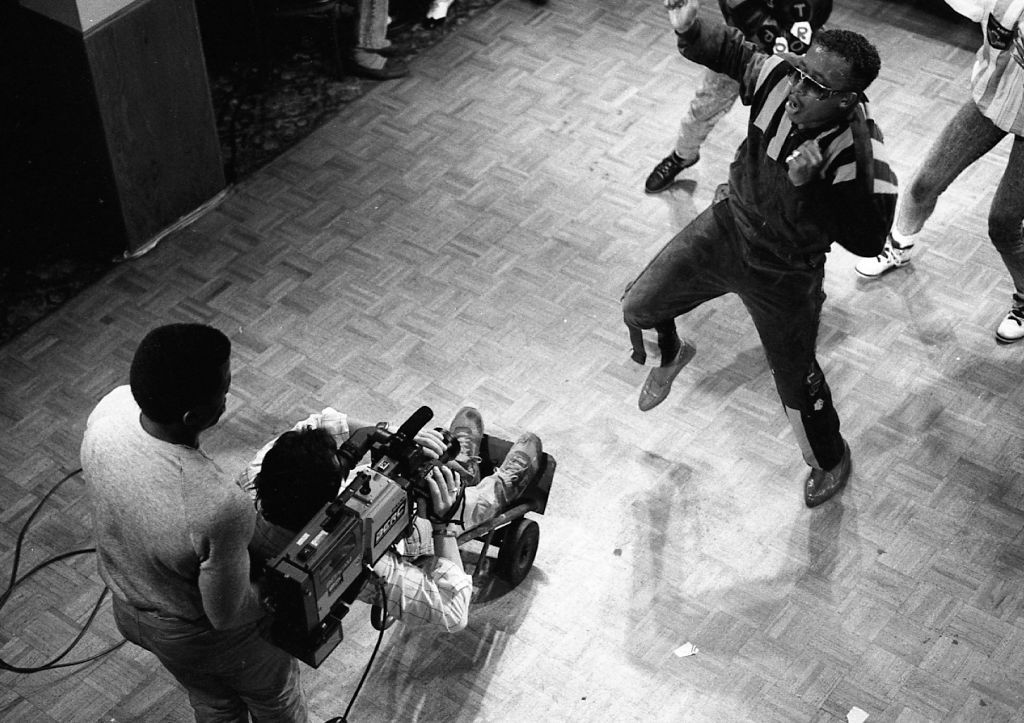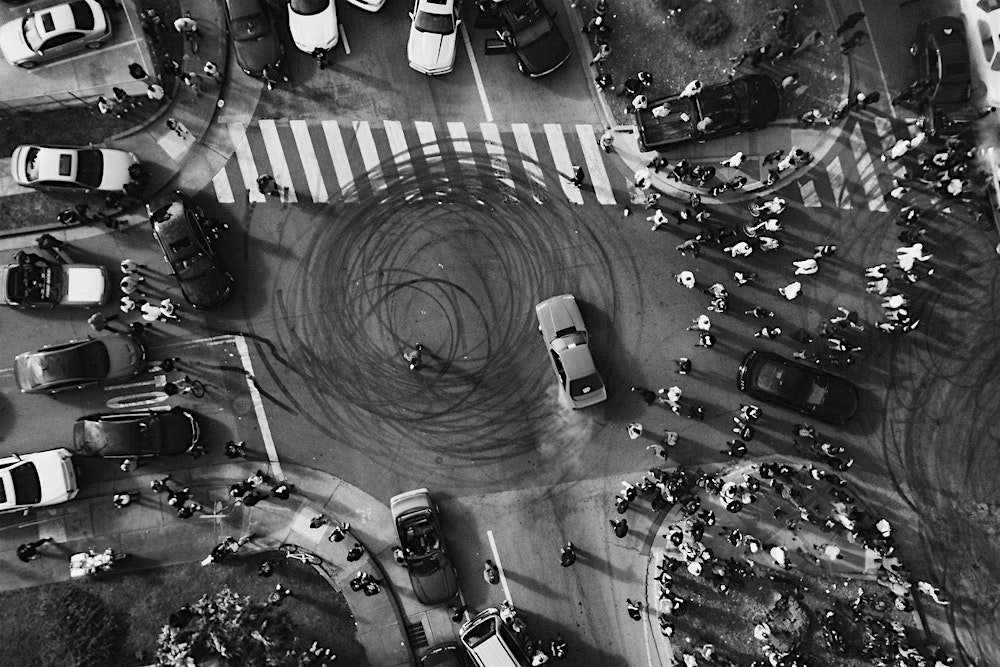What do train porters, boomboxes, Lincoln Continentals, barbecues, nightclubs and crowded intersections have in common?
As author Alex Werth illustrates in his new book, On Loop: Black Sonic Politics in Oakland (UC Press), all have been targeted by police and lawmakers throughout decades of sound containment in Oakland. Part history of Black expression, part dissertation on the squelching thereof, On Loop disassembles and analyzes the longstanding infrastructure that serves to keep Oakland’s creative and dynamic Black youth from reaching their full potential.
For those who’ve lived in Oakland, or paid attention to its culture, much of On Loop will be familiar terrain: the crackdown on sideshows, the “urban renewal” of the West Seventh Street cultural corridor, anti-cruising laws, a yearlong ban on rap concerts in 1989 and the end of Festival at the Lake.
 MC Hammer films the music video for ‘Let’s Get It Started’ at Sweet Jimmie’s nightclub in downtown Oakland, March 19, 1988. (Deanne Fitzmaurice/San Francisco Chronicle via Getty Images)
MC Hammer films the music video for ‘Let’s Get It Started’ at Sweet Jimmie’s nightclub in downtown Oakland, March 19, 1988. (Deanne Fitzmaurice/San Francisco Chronicle via Getty Images)
But Werth — a geographer, DJ and dancer who grew up in Massachusetts and came to Oakland in 2009 — brings a bird’s-eye perspective to these issues while unearthing telling details in decades-old police files and newspaper accounts. (He also cites reporting from KQED, East Bay Express and other media outlets.) Though his approach may be academic, his writing isn’t impenetrable. Anyone interested in Oakland culture, and the way it has been shaped as well as cauterized, will find his research valuable.
The book’s title On Loop refers to the musical rhythms of funk and rap as much as the spinning of a sideshow car, a DJ’s record, a walk around Lake Merritt and the cyclical nature of policing. Through a sound-studies lens, Werth equates sonic presence, and taking up space in its many forms, with Black liberation.

